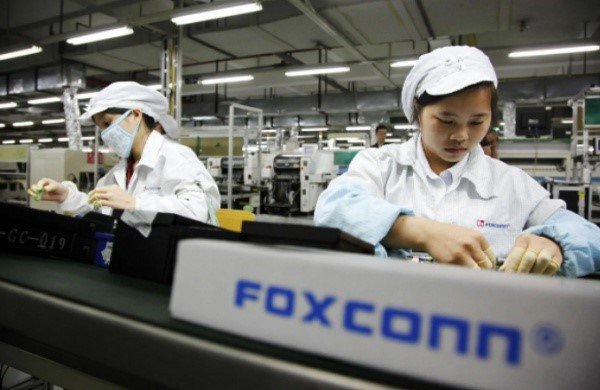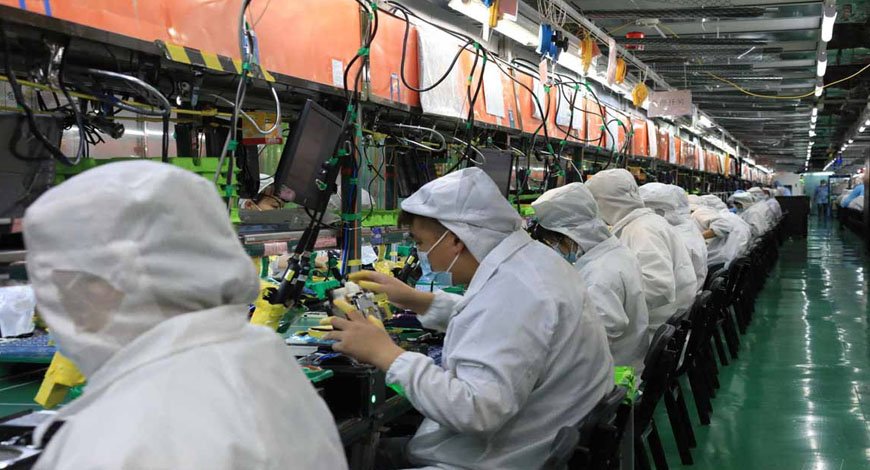This significant expansion in workforce is aimed at ramping up the production of the much-anticipated iPhone 16, which is slated for release later this year. Foxconn, the Taiwanese manufacturing giant and Apple’s key partner, has recently undertaken a massive recruitment drive at its Zhengzhou factory in China, hiring approximately 50,000 new workers. The move comes as Apple gears up for what is expected to be a crucial period in its product lifecycle, with ambitious shipment targets and stiff competition in the global smartphone market.
Recruitment Drive to Meet Ambitious Production Goals
The period from August to December is traditionally a peak season for iPhone production, and this year is no exception. Apple has reportedly set a target of shipping 90 million units of the iPhone 16, a 10% increase from the previous year’s iPhone 15 shipments. To meet this target, Foxconn’s Zhengzhou facility, the world’s largest iPhone production base, has been aggressively ramping up its labor force.
Late in July, Foxconn began posting recruitment notices across major job sites and social networking platforms, offering prospective workers an increased hourly wage of up to 25 yuan (approximately $3.50). This is a notable increase in wages, reflecting both the urgent need for labor and the competitive nature of the job market in China’s manufacturing hubs. In addition to the wage hike, Foxconn has also sweetened the deal with a substantial hiring bonus of up to 7,500 yuan (about $1,040), up from the 6,000 yuan (around $835) bonus offered just a month earlier.

Strategic Importance of Zhengzhou Factory
The Zhengzhou factory, often referred to as “iPhone City,” plays a critical role in Apple’s global supply chain. As the world’s largest iPhone production base, it is pivotal to meeting Apple’s production and shipment goals. The factory’s ability to scale operations rapidly is one of the key reasons why Apple continues to rely heavily on Foxconn for its manufacturing needs.
Foxconn’s recent hiring spree is not just about meeting production targets; it is also a strategic move to reinforce its position as Apple’s most reliable partner. Despite ongoing rumors and speculation about Foxconn potentially relocating its manufacturing facilities out of China, the company has doubled down on its commitment to the region. In July, reports emerged that Foxconn was planning to invest approximately $148 million in a new business headquarters in Zhengzhou, further solidifying its ties to the city and its role in Apple’s production strategy.
Challenges and Market Dynamics
The increased focus on ramping up iPhone production comes at a time when Apple faces significant challenges in the Chinese smartphone market. In the fourth quarter of last year, Apple held the top spot in China, but its sales dropped by 19.1% in the first quarter of this year, causing it to fall to third place behind local competitors Vivo and Honor. This decline in market share has likely added pressure on both Apple and Foxconn to ensure a successful launch of the iPhone 16.
The Chinese smartphone market is one of the most competitive in the world, with local brands like Vivo, Honor, and Xiaomi consistently challenging international players. To regain its footing, Apple needs a strong performance from the iPhone 16, not just globally but particularly in China, where consumer preferences can shift rapidly. This makes the success of the Zhengzhou factory’s ramped-up production all the more critical.

Addressing Past Controversies
Foxconn’s decision to increase wages and offer higher bonuses may also be viewed as a response to past controversies surrounding labor practices at its Chinese factories. Over the years, the company has faced scrutiny over working conditions, including reports of long hours, inadequate pay, and harsh working environments. By improving compensation and working conditions, Foxconn is likely attempting to attract a larger pool of workers while also addressing these lingering concerns.
The current recruitment effort can be seen as part of a broader strategy to ensure that the company can meet its production targets without compromising on labor standards. This approach is essential not only for maintaining production efficiency but also for protecting Foxconn’s reputation, which is closely linked to Apple’s brand image.
Broader Implications for the Global Supply Chain
Foxconn’s role in the global electronics supply chain cannot be overstated. As the largest provider of electronics manufacturing services worldwide, and the biggest private employer in China, its operations have a significant impact on the global market. The ramp-up in iPhone 16 production will likely have ripple effects across the supply chain, influencing everything from component sourcing to logistics and distribution.

Interestingly, Foxconn’s ramped-up hiring coincides with reports that Samsung and LG have also started mass-producing display panels for the iPhone 16 lineup. Apple has reportedly ordered 80 million display panels from Samsung and 43 million from LG, indicating the scale of production required to meet the company’s shipment targets. The coordination between these key suppliers highlights the complexity and interdependence of the global supply chain that supports the production of Apple’s flagship products.
As Foxconn continues to ramp up production, all eyes will be on the performance of the iPhone 16 when it hits the market later this year. The success of this product will not only impact Apple’s market position but also the broader competitive landscape of the smartphone industry. For Foxconn, meeting the ambitious production targets set by Apple will be crucial in maintaining its status as the go-to manufacturing partner for one of the world’s most valuable companies.






